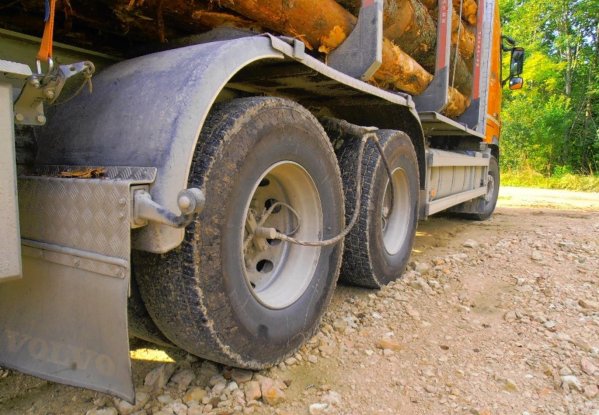LVM Announces a Tender for Timber Transportation Services Using Special Equipment
Forestry work is organised in different weather conditions, therefore it is especially important to make the planned timber deliveries within the defined timeframes in hard-to-reach forests, preserving both forest and state roads.
JSC “Latvia's State Forests” (LVM) announces a tender “Provision of Timber Transportation Services in 2019 – 2020 with Timber Transporters Equipped with a Tire Pressure Monitoring System”. The subject of the tender is the provision of timber transportation services with timber transporters equipped with a tire pressure monitoring system and the provision of related services in accordance with the technical specification.
LVM offers a one-year framework agreement to be awarded in an open tender. The maximum volume of timber transported is 485 000 m3. Tender proposals can be submitted in the electronic procurement system by 8 May; 10:00.
“With the advancement of technologies in the transport sector, for the very first time LVM is launching a tender for service providers for timber transportation 'with added value', namely with vehicles equipped with a tire pressure monitoring system. With this system, the timber truck driver can conveniently and easily adjust the pressure of timber truck tires, thus ensuring the best tire pressure for certain driving conditions. This will increase the availability of timber in hard-to-reach areas: on sandy roads and carriageways in dry periods, on low load-bearing roads, roads without pavement in wet weather. Moreover, forestry work will be provided in a more gentle way than using conventional timber transportation equipment,” says Mārtiņš Krūze, LVM Logistics Manager.
Such forest vehicle also reduces the daily maintenance costs of the infrastructure: if on low load-bearing roads timber is transported by a timber carrier equipped with a tire pressure monitoring system, there is no need for some road maintenance works in certain conditions and places that would be necessary in the case of conventional timber transporters.
The usefulness and efficiency of this technology have been proven not only in many studies carried out in Latvia and elsewhere in the world, but also in practice through the use of some of the logistical services of this system under other contracts.



